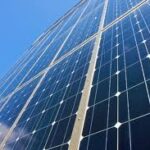Limitless Green Opportunities in the ways of life
June 10, 20138 Solar Stories on GWI
June 11, 2013Chinese put pressure on Europe
The European Chinese solar trade saga took an important turn when the EU imposed a 11% duty on imports of Chinese made solar 
1) China has already starting exerting pressure by starting a dumping subsidy on imports of wine from Europe (a critical export for France).
2) Put more pressure on Merkel and other top European countries that depend on exports to China.
3) Give concrete action to the anti dumping investigation on imports of polysilicon from US, Europe and Korea.
Read on GWI 11.8% provisional duty on Chinese produce, temporary relief for Chinese Solar Panel Manufacturers.
However, do not expect poly prices to appreciate crazily, as the companies will find ways to circumvent these restrictions. The solar panel companies can either start making some of their cells and panels outside (Taiwan, Malaysia), or they could buy wafers from outside instead of polysilicon. The Taiwanese companies as usual should be the biggest beneficiaries.
China anti-dumping duties to drive up solar polysilicon devices, says IHS
The likely imposition of the import duties will cause global solar polysilicon pricing to rise to US$19.50/kg in June and July, up from US$16.50/kg in May, according to IHS. This represents a major turnaround for a polysilicon market that has seen average pricing decline for seven of the last 10 months.
“IHS believes China is likely to impose anti-dumping tariffs with rates ranging from 30-50% on polysilicon imported from the EU, the US and South Korea,” said Glenn Gu, senior analyst, photovoltaics, at IHS. “However, the impact of the duties will be mitigated by factors including long-term agreements (LTA) that stabilize pricing as well as efforts by buyers and sellers to bypass the tariffs.”Meanwhile, it will be difficult for China-based mid-stream players to accept polysilicon prices above US$20.50/kg from the spot market in China with continuous cost pressure from downstream supplier.
